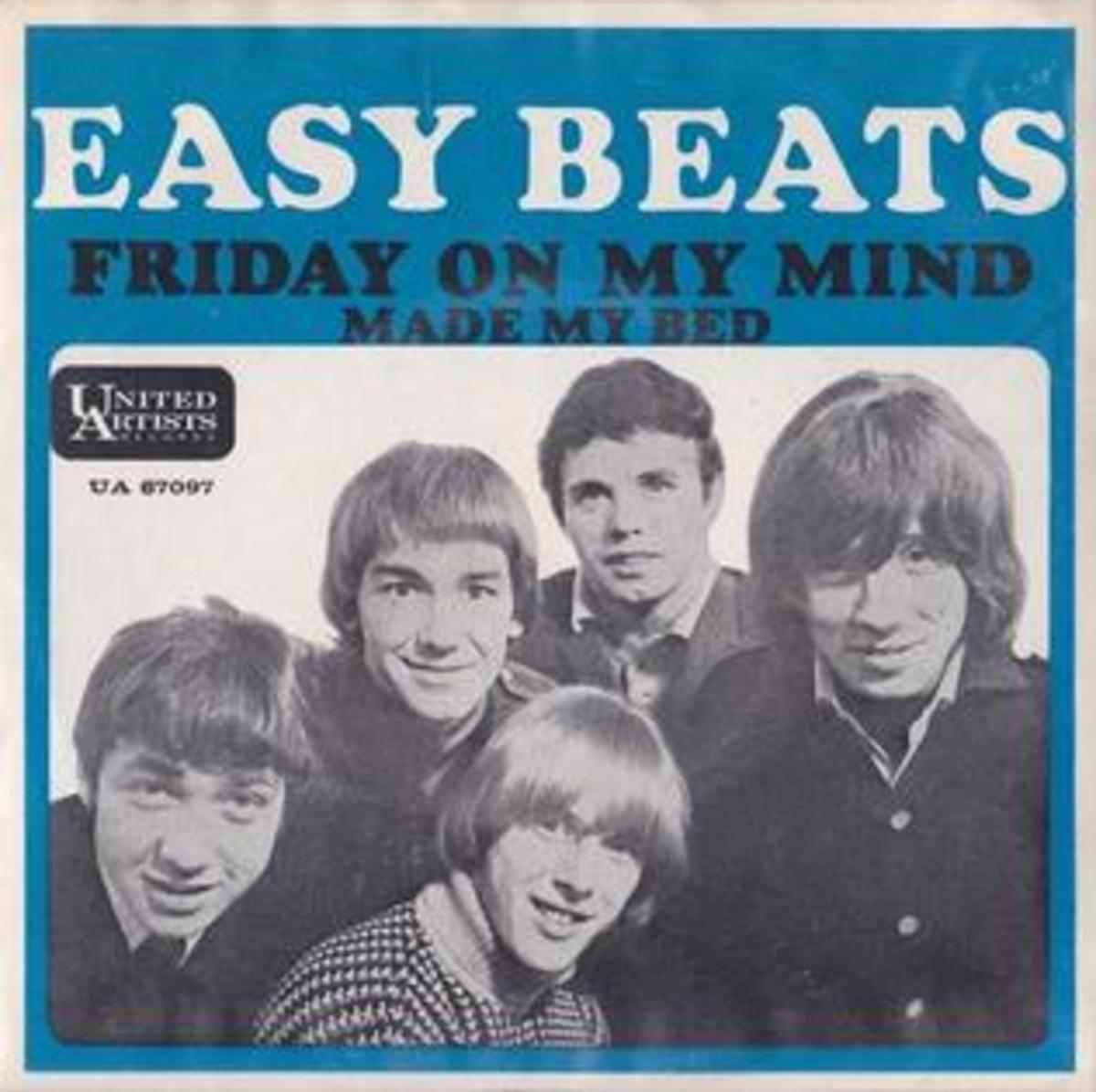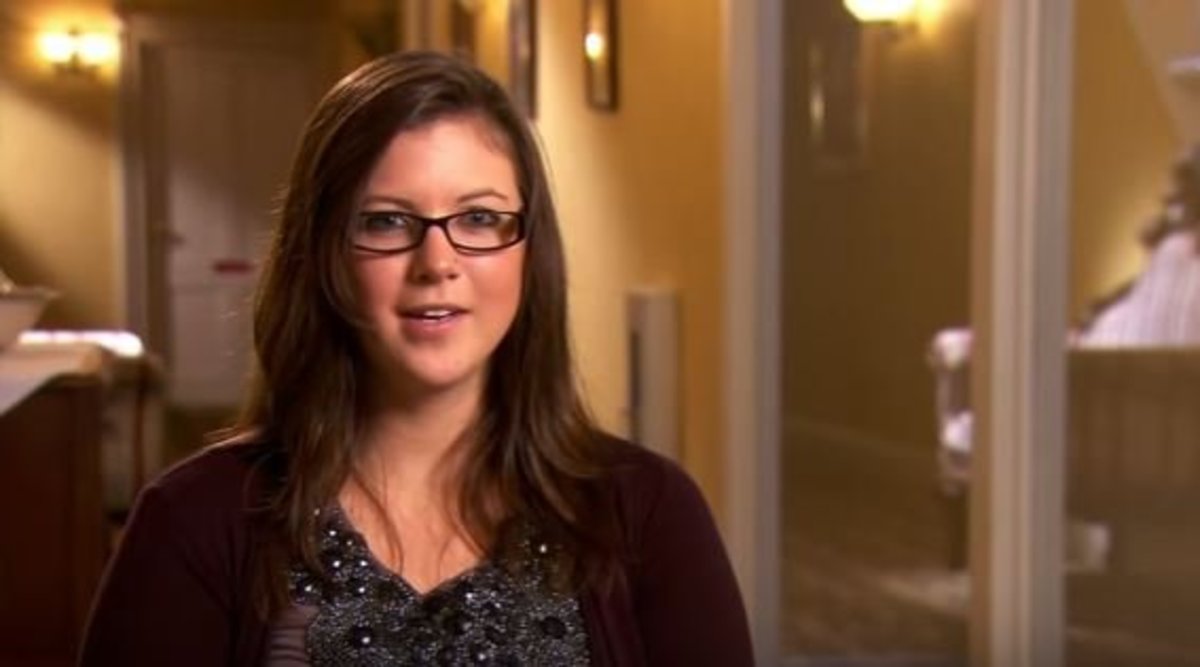The 2013 American Idol Songbook: April 24, Top 4 Finalists Sing Free Choices and One-Hit Wonders
Introduction
April 24, 2013 was one of the most ill-starred episodes of American Idol this season, but it possibly won’t make much difference as to the outcome. Rumors of a no-elimination week may account for the below-average performances from most contestants this week. If that’s true, it’s probably just as well that they save their best for when it counts. Candice, a bit of a perfectionist, dominated the night and provided the closest thing to standouts despite a cold. That was partly due to intelligent song choice and partly due to her ability to compartmentalize the promotional parts of the show from the actual performances. This was particularly evident in the first round, when she was the only one that made little to no attempt to tie in her first song to her music therapy visit to the Children’s Hospital Los Angeles. While it was certainly a noble gesture on Idol’s part and the singers were all wonderful to the children they visited, all but Candice seemed bound by a kind of pressure to pay tribute in their actual song. Indeed, that spirit of giving and inspiration in anticipation of the visit may have led to somewhat more syrupy choices, especially from Amber and Angie, than they would otherwise have picked, indirectly leading to the drab first round. The most deleterious effect might be the rather asinine choice of a second-half theme made by voters on Twitter and over the American Idol app. Many suggestions were kicking around, including my own lonely voice in the wilderness suggesting the possibility of an Australian artists’ and songwriters’ night in honor of Keith (thanks for delivering on that front, Candice!), but ultimately the people chose “one-hit wonders.” The popular term for an artist or group that only got one major singles hit (usually Top Ten or Twenty) on the pop charts in one country, or for that song itself, “one-hit wonder” doesn’t exactly augur good luck for Idol contestants, especially when most past winners have struggled to succeed with their follow-ups. However, it is a very broad theme, often encompassing very unique songs a little out of step with the sound of the times. Some one-hit wonders were ephemeral groups, including doo-wop groups exploited by unscrupulous labels that often confined R&B acts to the same fate, dance acts reassembled like Legos by producers without regard to developing a real persona to draw in listeners, and “supergroups” put together by otherwise busy stars. Sometimes the artist, label, and radio just didn’t triangulate right for a market where one is often judged by their latest hit, and there was almost always a dedicated fan base somewhere in some field or a more impressive career behind the scenes. With the exception of novelties that almost guaranteed one-hit wonder status, many of these songs were quite entertaining and doomed by things beyond the artists’ control, and they do have the advantage of being something an Idol singer can “re-claim” without being compared to a well-known legend. While another theme would doubtless have been better for a field with this much potential, it was still the better half of a night punctuated irritatingly by the judges’ focus on “star quality” in a field of vocalists they considered evenly matched. As the judges and Jimmy discussed what would make an artist current (Candice proved that setting trends beats following them) and argued over song quality, I was thinking this was not their finest hour, but then again, what will this episode really mean in the long run? Since the duets were as good as most of the solo numbers, something unprecedented this season and almost unheard of on this show, I’ve included video below for comparison.
Amber Holcomb – “The Power of Love” (Jennifer Rush) and “MacArthur Park” (Richard Harris) – Advanced
It took eight years for it to happen, but “The Power of Love” finally managed to become a hit in its original singer’s homeland in 1993. Back in the early 1980s, American vocalist Jennifer Rush was trying her fortune in Germany, where she’d spent a great deal of her life on account of her parents’ classical music careers. Rush struggled to have hits at first but finally found a winning formula with a song by Candy DeRouge (Wolfgang Detmann) called “You Are My Lady and I am Your Man.” DeRouge, his production partner Gunther Mende, and Mary Susan Applegate (Mary Klopprogge from Eurodisco group Air Liquide), all helped Rush re-write the song as “The Power of Love.” Though only a modest hit in Germany on its 1985 release, the song soared to the top of the British charts and was a pan-European smash. In Rush’s distinctive hands, it sounded more like the mock operas of Meat Loaf, Kate Bush, and Bjørk than a conventional German schläger song. Nevertheless, CBS Records, her global label, considered it overly European in sound for the American market and therefore refused to promote it in the United States. Each of the three artists who released U.S. hit singles since took it closer and closer to the American mainstream, including Aussie soft-rock duo Air Supply (1986) and American pop star Laura Branigan (1987). It was Celine Dion, however, whose native Canadian charts also rewarded Rush’s original with a number one, who finally made the song a hit south of the border on her 1993 album The Colour of My Love. She gave it an over-the-top ballad performance in standard Dion fashion, even adding an ever-so-slight bit of country twang with the help of her compatriot producer David Foster, giving the song that extra push it needed to win the hearts of North American audiences once and for all. Last season, fourth-place contestant Hollie Cavanagh was the ideal singer for what is now classic diva material, with a voice that seemed shocking for someone so young. Amber, however, though touted as the next Whitney Houston, actually seems less comfortable in this type of performance than in her more jazz-influenced numbers. This is not to say that Amber doesn’t technically sing well on pop ballads, and she certainly does have the winning personality the judges pointed out this week. Nevertheless, there’s an increasingly shrill feel to her voice as this type of song progresses, without the smoothness of Whitney or Mariah or the consistency of Amber’s less crowd-pleasing but more substantial clubhouse approach. When Amber did “My Funny Valentine,” “She’s Leaving Home,” and “What Are You Doing the Rest of Your Life?,” she actually stood out from the pack this season.
Jimmy Webb, definitely no “one-hit wonder” himself as the author of “Up, Up, and Away” and “Wichita Lineman,” was making his mark as one of the most distinctive songwriters of his era when actor Richard Harris, of all people, proposed making an album in 1967. Webb’s unusual chord sequences and often cryptic metaphors made his compositions unlike anything else on the radio, and his genius certainly earned him his place in the National Songwriters’ Hall of Fame that he now chairs in place of the late Hal David. “MacArthur Park” was the L.A. hangout where he used to see his ex, Linda Ronstadt’s cousin Susan, and Webb was the sort of guy to write a metaphorical cantata about the breakup. Yes, the goofy literal interpretation was not the intended meaning of the song, no matter what Homer Simpson thought in his memorable karaoke rendition. The suite was recorded by Harris with top-flight musicians, including Webb on the harpsichord. Its sheer seven-and-a-half-minute length broke radio conventions of the day as it soared to the Top Three, perhaps partly due to the sheer audacity of the undertaking. The reasons for the one-hit wonder are obvious, since Harris had an underwhelming voice not worthy of quitting his lucrative day job. However, the song itself grew in reputation over the years, ultimately getting a disco cover from the more proficient Donna Summer, who doubtless was drawn to its intentional lied quality. A good singer can cover the song beautifully in the original arrangement, but as I watched Amber perform it, my heart sank to discover her doing the Donna version. Amber seemed lost in the lockstep of the heavy Philadelphia-style string section as soon as the up-tempo part kicked in, which baffled me because the slower version with a few verses shorn for brevity’s sake would have played better to her strengths as an artist. Indeed, perhaps she and Angie should have switched one-hit wonders, since Angie’s bluster might fit “MacArthur Park” as well as Amber’s tender improvisation would suit “Cry Me a River.”
Angie Miller – “Who You Are” (Jessie J) and “Cry Me a River” (Julie London) – Advanced
British dance-pop starlet Jessie J (born Jessie Cornish) lit up the charts on both sides of the Atlantic in 2011 with the punchy grooves of “Price Tag” and “Domino,” but like many artists of her ilk, there were plenty of ballads on her debut album Who You Are. The title track, a hit in the U.K. unreleased as a single in the United States, was penned with the help of Toby Gad, a pop professional also represented this year with his early hit “Big Girls Don’t Cry” for Fergie. Also participating was Shelley Peiken, a veteran who took time off to raise her child after scoring often uplifting hits such as Meredith Brooks’s self-empowering “B*tch” (the title is meant to be ironic) and Christina Aguilera’s “What a Girl Wants.” Peiken is just the sort of songwriter that could pen a hit for Angie on the pop market, and Jessie sounded a lot like Angie on “Who You Are” with her breathy, emphatic alto. Jessie felt rejuvenated by the act of writing the song, considering it a retort to the sometimes caustic music press (particularly in the U.K.) and their tendency to critique tiny flaws, but generalizing it to something to which many young people could relate. Angie’s take is similar to many of her other piano covers, including her earlier one from Hollywood week, in that it builds up from a quiet introduction to louder, higher parts at the end. Though she appears committed fully to the song on this type of performance, there’s something lacking here. Her voice has a hollow quality, especially when she strains to get the obligatory high notes on the choruses and tries to copy the almost spoken interludes near the middle of “Who You Are.” Even when singing about being genuine, Angie can seem artificial, though not necessarily unlistenable.
Classically trained Arthur Hamilton was a real jazz lover’s treasure, mostly writing obscure tunes but penning a few better-known songs such as “Sing a Rainbow” and “Cry Me a River.” Hamilton was tapped to write a torch song for Ella Fitzgerald to warble after a breakup in the 1955 film version of the old radio hit “Pete Kelly’s Blues.” The song was dropped from the movie but picked up by Julie London, a high-school classmate of Hamilton’s who was married to his colleague Bobby Troup (of “Route 66” fame). London, a prolific actress whose career culminated in a TV gig on her ex Jack Webb’s last hit Emergency! (a 1970s medical drama), later sang “Cry Me a River” in the 1956 film The Girl Can’t Help It arranged by Troup. Her smoky voice was perfect for the song and gave her a devoted following on vinyl, though the time demands of her acting career and the competition of rock ‘n’ roll’s sudden rise in popularity hampered her ability to succeed with follow-up singles. Angie doesn’t exactly exude the sort of cool, almost detached ease that we tend to associate with a “standard” cover, and her version doesn’t seem to take the song in a direction it was meant to go. I like to hear remakes as much as the next guy, if not more, but Angie’s runs here and there seem like they grow out of her own need to insert them into her performance rather than appearing to be extensions of the song itself. In addition, the traditional arrangement clashed somewhat with her experiments in updating the song. Angie’s general lack of connection to “Cry Me a River” (I would never picture her singing a song with “plebeian” in the lyrics) may well have affected even a straight rendition, so perhaps this was simply another botched song choice on a theme that was ill-advised to begin with.
Candice Glover – “Find Your Love” (Drake) and “Emotion” (Samantha Sang) – Advanced
At the risk of starting what the hip-hop business would call a dis war, Drake, born Aubrey Graham, is a better rapper than he is a singer. A charismatic Torontonian who shares the aptly named Cash Money label with other highly successful (though not always artistically brilliant) artists such as Lil’ Wayne and Idol’s own Nicki Minaj, Drake burst on the scene in 2009 with the blockbuster album Thank Me Later. He has a breezy rhyme scheme that helped restore Americans’ faith in Canadian hip-hop after the dated “Informer” by Snow (1992) may have soured them on the country’s output. Though he’s no Usher, his voice goes well with the catchy keyboard grooves in the backgrounds of songs such as “Find Your Love.” Of course, the song benefitted from the production and songwriting of No I.D. and Jeff Bhasker in addition to the inimitable Kanye West, whose love for old-school R&B has often showed in his best work. West was no stranger to working behind the scenes. In fact, he had established himself in work with Jay-Z, Alicia Keys, and his own discovery John Legend before his debut with the 2004 album The College Dropout. An egotistical personality who often gets on people’s nerves despite his obvious intelligence and creativity, West has proven for those willing to take a listen to his work that likeability and talent need not go hand in hand. “Find Your Love,” a Top Five smash in 2010, had a great atmosphere and a lyric infused with romantic longing, but even Drake himself conceded that it almost might have worked better with a female artist. Candice pretty much proves him right in a version that, while not the epic triumph of her version of Legend’s “Ordinary People,” is still a highlight of the night. Candice with a cold is the equivalent of ninety-five percent of singers at their very best. She brings out the emotional core hinted at in Drake’s original by ornamenting every phrase in just the right way. Nicki, in a somewhat territorial move on behalf of her friend Drake, claims to be non-plussed by Candice’s modifications to the song, but I think Drake, West, and Bhasker have much to be proud of in what Candice did.
“Emotion” was blessed with some of the most underrated songwriters of all time, and yet the artist wound up being the epitome of the one-hit wonder. Of course, when those songwriters are the Bee Gees and they steal the show anytime they sing backup, it’s easy for listeners to get confused and forget that there’s an up-and-coming singer named Samantha Sang in there. By late 1977, when the song was released as a single in anticipation of what turned out to be a flop album, Sang had been acquainted with her fellow Aussies the Bee Gees for a decade. Despite a few hits in her native country and some success on the continent when she moved to the U.K. with the brothers Gibb, Sang had never cracked the U.S. market until “Emotion.” In 1975, a visa SNAFU forced her to return home, but she got another shot when the Gibbs went to the States to work on the 1977 film Saturday Night Fever. Much to her chagrin, the song was ultimately dropped from the best-selling soundtrack of all time and pushed onto the forgettable exploitation vehicle The Stud the following year. Sadly, this became yet another cautionary tale of an artist falling victim to the politics and machinations of the business, since she did have a decent voice in the parts of “Emotion” where you actually hear her and released some highly collectable follow-ups that never caught on. Prompted by producer Mark Feist who had no luck covering it in an acoustic version with Regine Velasquez in 1998, Destiny’s Child cut a gorgeous slow take on their 2001 album Survivor. The group captured the lilting melodies of the deceptively simple breakup song very well, and it ensured the immortality of a classic. Candice’s version is definitely in the tradition of that of Destiny’s Child, but she proves “Emotion” can work as a solo song better than anyone I’ve seen cover it. She makes the falsetto key changes that define so much of modern R&B work, as she always has, by turning the notes just so in a way that perfectly leads into the next part of the tune. It’s those transitions in which some of the more tiresome singers break down, but Candice just keeps you listening by handling the progression so well. Her studio versions are now on par with her live performances, making me ever more confident that her future is assured. Randy suggests that these engaging efforts I’ve heard from her, by far the most consistent in quality of the season, are beginning to blend together too much, that she shouldn’t “always sound like [she’s] in church.” If that’s what this track record is, then I’m looking forward to Sunday all week.
Kree Harrison – “It Hurts So Bad” (Susan Tedeschi) and “A Whiter Shade of Pale” (Procol Harum) – Advanced
Given a choice of whatever she pleases, Kree has thrown a bone to the somewhat obscure world of contemporary blues. A four-time Grammy nominee, Tom Hambridge has specialized for two decades in producing and otherwise assisting artists that keep alive the flame of a genre that influenced music around the world but has become increasingly alienated from the African-American audiences that first nourished it. Hambridge and Tedeschi, the gifted singer-guitarist who recorded his “It Hurts So Bad” for her debut album Just Won’t Burn in 1998, are both white and both showed a command of the Southern soul-blues style on that song, though mainstream recognition would long elude them. Kree clearly is a fan of the style, and its influence on her sound is undeniable. Performances like this one and last week’s “She Talks to Angels” often evoke comments from judges and other observers that she’s in her zone, reacting with what I find undue surprise at her ability to combine blues and its cousin country music. However, I feel they may be a little off in that assessment. After all, there’s a sweetness in her voice that doesn’t always capture the grit these songs’ best interpreters project, and she has a laid-back performing style that doesn’t exactly make the earthiness of an original like “It Hurts So Bad” come alive. I’m always impressed with her professionalism and her willingness to cover obscure material, a strategy often considered a risk but successful for previous contestants such as last year’s winner Phillip Phillips. However, “It Hurts So Bad” is not the sort of song at which Kree the vocalist excels.
Procol Harum’s 1967 debut single “A Whiter Shade of Pale” is easily placed as one of the first progressive rock hits of its era, given the esoteric lyrics and nods to classical music contained therein. The London band knocked it out of the park with this highlight of their self-titled debut album, barnstorming the charts on both sides of the pond with a heady mixture of blues guitar and Bach rolling bass, as perfect for a slow-dance as it was for psychedelic listening. Is it about sex, exile, a spiritual experience? The subject mattered little to many who simply embraced the comforting baroque background, courtesy of harpsichordist and co-writer Matthew Fisher. Perhaps the lack of such hooks doomed them to mainstream obscurity when American audiences didn’t find them on later singles such as “Homburg” and “Conquistador.” Indeed, progressive rock acts often wound up with a small but devoted following, with the exception of some breakout stars such as the Moody Blues and the Alan Parsons Group, because it takes a certain mindset to appreciate the long, complex compositions such artists produced. Progressive rock was rock’s answer to art music, in effect, and many musicians in the genre were classically trained. Given that this is American Idol, Kree keeps it simpler and overall betters her first performance of the night. At her best, as here, Kree adds just the slightest touch of twang to songs slow enough to provide room for her to do so. When she performs in this style, a very eclectic country-pop, she creates something that’s as enjoyable to listen to as to perform on stage, if not more so, something I don’t see with “rock Kree” as much as many others do. Granted, Kree will always be able to get a great response doing jams in concert and they’d make great album tracks, but her best singles will likely be the ones where she focuses on the emotion and the melody.






